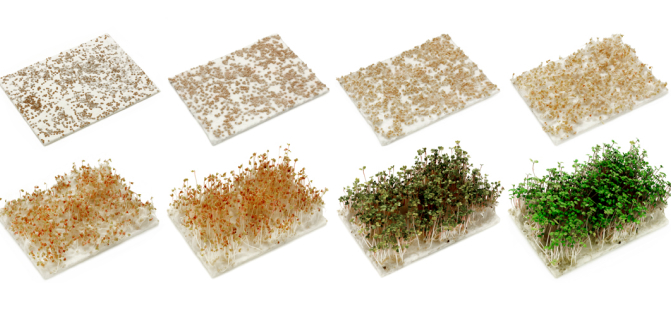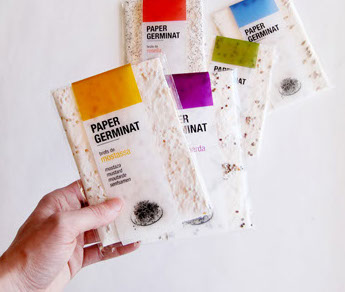Germinating paper is a product that combines the art of handmade paper with gastronomy and botany.
It's made by hand at the Museum using 100% cotton fibre that's free from elemental chlorine (ECF) and has no additives. The cotton used to produce paper comes from fibres left over in the cotton industry.
Cotton is the fibre with the highest percentage (99%) of cellulose found in nature and the one with the lowest content of inorganic matter.


